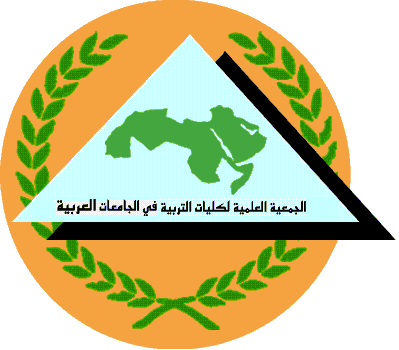Association of Arab Universities Journal for Education and Psychology

Abstract
الملخص يهدف هذا البحث إلى معرفة آراء المعلمين في الحلقة الثانية من التعليم الأساسي، في ممارسة طرح الأسئلة الصفية، وفاعلية توظيفها في التعامل مع إجابات المتعلمين. وقد اعتمد البحث المنهج الوصفي التحليلي، باستخدام استبانة تضمنت محورين، هما: ( كيفية طرح الأسئلة الصفية، وكيفية التعامل مع إجابات التلاميذ).
وزعت الاستبانة على عينة عشوائية مكونة من (117) فرداً، منهم (51) فرداً من معلمي اللغة العربية والجغرافيا (تخصص مواد أدبية), و(66) فرداً من معلمي الرياضيات والعلوم (تخصص مواد علمية) في الحلقة الثانية من التعليم الأساسي بمدينة دمشق، وكانت نسبة العينة ( %25 ) من المجتمع الأصلي.
توصل البحث إلى النتائج الآتية:
1- كانت المهارات الأبرز في ترتيب كيفية طرح الأسئلة الصفية، هي: (إعطاء فرصة للتلاميذ للتفكير بعد السؤال، واختيار المجيب بعد طرح السؤال، وصياغة الأسئلة بألفاظ واضحة، واستخدام أسئلة تقيس النواحي المهارية عند التلاميذ).
2- كانت المهارات الأبرز في ترتيب كيفية التعامل مع إجابات التلاميذ، هي: (تجنب تأنيب التلميذ على الإجابة الخاطئة، امتداح التلميذ على الإجابة الصحيحة بعبارات لفظية، وتصحيح الأخطاء بروية وهدوء، وإعادة صياغة السؤال في حال عجز التلاميذ عن الإجابة).
3- لم تظهر فروق دالة إحصائيا، بين متوسطات درجات آراء أفراد العينة تبعا لمتغير التخصص التدريسي (علمي وأدبي)، في محوري (كيفية طرح الأسئلة الصفية وكيفية التعامل مع إجابات التلاميذ).
This research aims to know the opinions of teachers in the second cycle of basic education, in the practice of asking classroom questions, and the effectiveness of using them in dealing with learners' answers. The research adopted the descriptive analytical approach, using a questionnaire that included two axes: (how to ask class questions, and how to deal with students' answers).
The questionnaire was distributed to a random sample of (117) individuals, including (51) individuals who were teachers of Arabic language and geography (specializing in literary subjects), and (66) individuals were teachers of mathematics and sciences (specializing in scientific subjects) in the second cycle of basic education in the city of Damascus. The sample percentage was (25%) of the original population.
The research reached the following results:
1- The most prominent skills in arranging how to ask class questions were: (giving the students an opportunity to think after the question, choosing the answerer after asking the question, formulating questions in clear words, and using questions that measure students’ skill areas).
2- The most prominent skills in arranging how to deal with students’ answers were: (avoiding reprimanding the student for the wrong answer, praising the student for the correct answer in verbal terms, correcting mistakes slowly and calmly, and reformulating the question in case the students were unable to answer).
3- There were no statistically significant differences between the average scores of the sample members’ opinions according to the variable of teaching specialization (scientific and literary), in the two pivots (how to ask class questions and how to deal with students’ answers).
Recommended Citation
حلاوة, باسمة
(2022)
"آراء المعلمين في ممارساتهم مهارات طرح الأسئلة الصفية والتعامل مع إجابات التلاميذ " دراسة ميدانية في مدارس الحلقة الثانية من التعليم الأساسي بدمشق " . Teachers’ opinions on their practices, skills of asking class questions and dealing with students’ answers “A field study in the schools of the second cycle of basic education in Damascus”,"
Association of Arab Universities Journal for Education and Psychology: Vol. 14:
Iss.
3, Article 6.
Available at:
https://digitalcommons.aaru.edu.jo/aaru_jep/vol14/iss3/6

